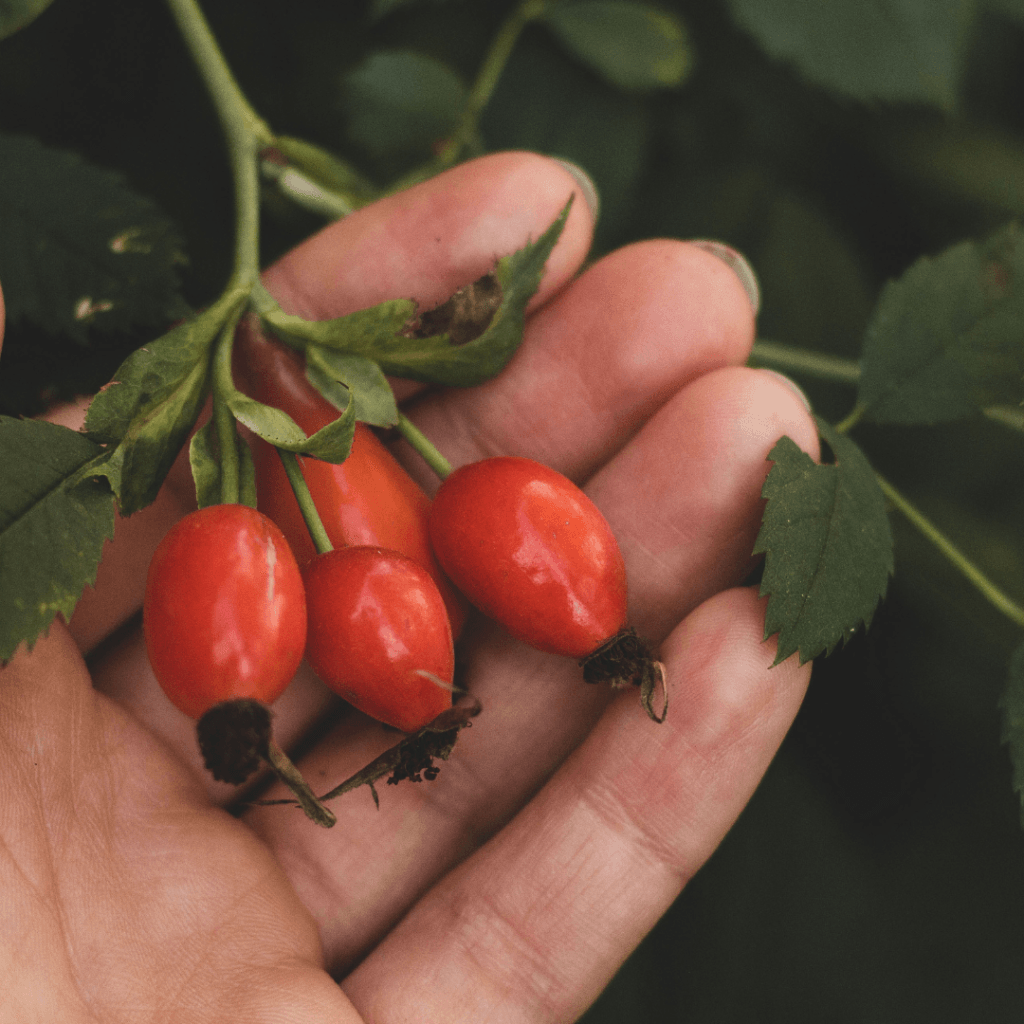Nestled within the vibrant world of botanical wonders lies a humble yet potent treasure: rosehips. Often overlooked in favor of their more glamorous counterpart, roses, these small, reddish-orange fruits pack a powerful punch both in terms of health benefits and culinary delights. In this exploration of rosehips, we uncover their rich history, nutritional value, medicinal properties, culinary uses, and how they continue to enchant enthusiasts worldwide.

The Origins and Characteristics of Rosehips
Rosehips are the fruit of the rose plant, forming after the flower petals have fallen away. They typically appear in late summer to early autumn, depending on the species and climate. These fruits vary in size and color but are generally small, round or oval-shaped, and range from bright red to orange or even dark purple when fully ripe.
There are several species of roses that produce edible rosehips, including Rosa canina (dog rose), Rosa rugosa (Japanese rose), and Rosa gallica (gallic rose). Each species has its unique flavor profile and nutritional composition, making them versatile for both medicinal and culinary purposes.
Nutritional Value of Rosehips
Rosehips are renowned for their exceptional nutritional profile, rich in vitamins, minerals, antioxidants, and essential fatty acids. They are particularly prized for their high content of:
Vitamin C: Rosehips contain significantly more vitamin C than citrus fruits, making them a potent natural source of this immune-boosting vitamin.
Vitamin A: Essential for eye health, skin regeneration, and immune function.
Vitamin E: An antioxidant that supports skin health and protects cells from oxidative stress.
Flavonoids: Plant compounds with antioxidant and anti-inflammatory properties.
Omega-3 and Omega-6 Fatty Acids: Essential for heart health and overall well-being.
Medicinal Uses of Rosehips
For centuries, rosehips have been prized in herbal medicine for their therapeutic properties. They are used to:
Boost Immunity: Due to their high vitamin C content, rosehips are used to strengthen the immune system and prevent colds and flu.
Support Joint Health: Rosehip supplements are commonly used to reduce inflammation and pain associated with arthritis and joint disorders.
Enhance Skin Health: Applied topically or ingested, rosehips can improve skin elasticity, reduce wrinkles, and promote a youthful complexion.
Aid Digestion: Rosehips contain dietary fiber that supports digestive health and helps regulate bowel movements.
Fight Oxidative Stress: Antioxidants in rosehips protect cells from damage caused by free radicals, reducing the risk of chronic diseases.
Culinary Uses and Delights
Beyond their medicinal benefits, rosehips lend themselves beautifully to culinary creations. Their tart and slightly sweet flavor adds a unique dimension to both sweet and savory dishes. Here are some delightful ways to incorporate rosehips into your culinary repertoire:
Rosehip Tea: A soothing and vitamin C-rich herbal tea made by steeping dried rosehips in hot water. It can be enjoyed hot or cold, with honey or lemon for added flavor.
Rosehip Jam or Jelly: The natural pectin in rosehips makes them ideal for jams and jellies. Combine with sugar and lemon juice to create a tangy spread for toast or desserts.
Rosehip Syrup: A versatile syrup that can be drizzled over pancakes, yogurt, or desserts, or used as a cocktail mixer for a botanical twist.
Rosehip Sauce: Blend cooked rosehips with spices and herbs to create a flavorful sauce for roasted meats or vegetables.
Rosehip Baked Goods: Add chopped dried rosehips to muffins, scones, or cakes for a burst of fruity flavor and nutritional benefits.
Rosehip Vinegar: Infuse apple cider vinegar with fresh or dried rosehips for a tangy and antioxidant-rich vinegar that enhances salads and marinades.
Harvesting and Preparation
Harvesting rosehips requires careful attention to timing and handling. Choose fully ripe rosehips that are firm and brightly colored. Remove any stems and leaves before processing. To prepare rosehips for culinary or medicinal use:
Drying: Spread fresh rosehips on a tray and dry them in a warm, well-ventilated area until they are leathery and dry to the touch. Alternatively, use a food dehydrator for faster drying.
Removing Seeds: Cut each rosehip in half and scoop out the seeds, which contain fine hairs that can cause irritation if ingested.
Storing: Store dried rosehips in an airtight container in a cool, dark place to maintain their flavor and nutritional potency.
Cultural Significance and Folklore
Throughout history, rosehips have held cultural and symbolic significance across different cultures:
Traditional Medicine: Used by indigenous peoples and traditional healers for centuries to treat various ailments and promote well-being.
Symbolism: In folklore, roses and rosehips symbolize love, beauty, and transformation. They are often associated with healing and spiritual growth.
Culinary Traditions: Found in traditional recipes and cuisines around the world, from Scandinavian rosehip soup to Turkish rosehip tea.
Environmental and Economic Impact
Beyond their nutritional and medicinal benefits, rosehips contribute to environmental sustainability and economic livelihoods:
Wild Harvesting: Many communities rely on wild harvesting of rosehips as a sustainable source of income and a way to preserve traditional knowledge.
Biodiversity: Growing rosehips supports biodiversity by preserving wild habitats and promoting sustainable agricultural practices.
Climate Resilience: Roses are adaptable to various climates and can thrive in challenging environments, making them resilient crops for local economies.
Conclusion: Embracing Rosehips
In conclusion, rosehips are a hidden gem of herbal medicine and gastronomy, offering a wealth of nutritional benefits, medicinal properties, and culinary delights. Whether enjoyed as a nourishing herbal tea, a tangy jam, or a soothing syrup, rosehips continue to captivate enthusiasts with their versatility and rich cultural heritage. By incorporating rosehips into our diets and wellness routines, we not only embrace their health-promoting properties but also honor their role in cultural traditions and environmental stewardship. Discover the magic of rosehips and let their vibrant flavors and holistic benefits enrich your culinary and wellness journey.


